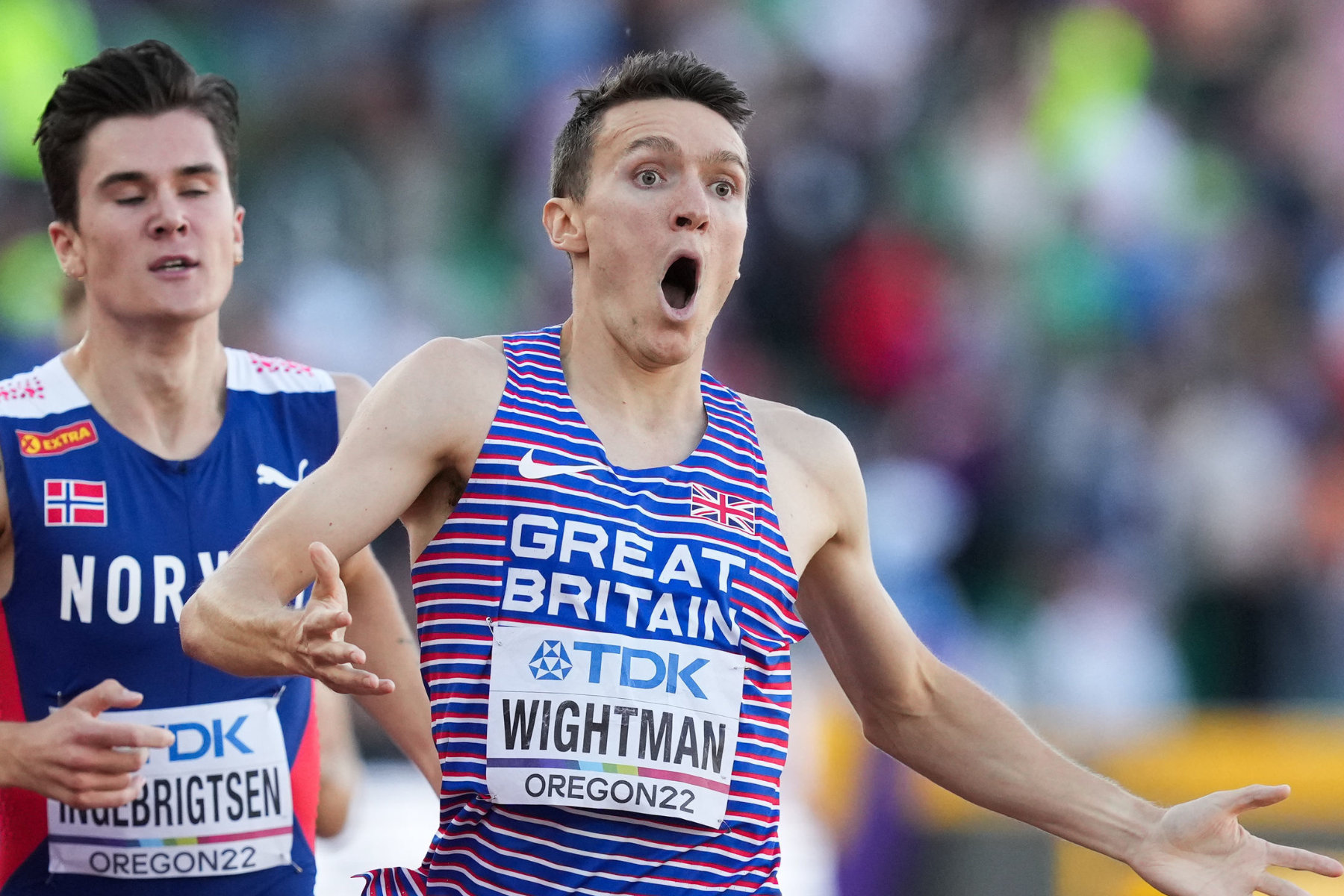
ANDY MURRAY becoming Wimbledon champion. Celtic winning the European Cup. Josh Taylor becoming undisputed champion of the world. For a small country, Scottish sportspeople have achieved some astonishing things.
In winning the world 1500m title last week, Jake Wightman is now in that distinguished group, writing himself into the history books and remembered forever more for one of the most incredible sporting feats seen in this country.
The significance and the impressiveness of Wightman’s victory in the early hours of Wednesday morning cannot be overstated. As a stand-alone achievement, his world title is one of the greatest by a Scot.
The argument of “best achievement” or “hardest sport” is never ending and unresolvable. But Wightman’s victory, by any measure, came in one of the toughest sports in which to win a world title.
The very nature of athletics, whereby at grassroots level almost no equipment nor facilities are required, makes it universally accessible.
However impressive Murray’s tennis Grand Slam wins, or Chris Hoy’s cycling gold medals or Katherine Grainger’s Olympic rowing title were, the same cannot be said for their sports.
Every country has kids running a mile. It’s why the spread of medals reaches to dozens of countries at major athletics championships.
For Wightman to be the top of the pile in a sport that has so much strength in depth is extraordinary.
The 28-year-old, who learned his trade at Edinburgh AC, did not just run a remarkable race in Eugene, he beat one of the sport’s superstars in Jakob Ingebrigtsen. To beat the very best on the biggest stage is something few are able to do.
The phrase “couldn’t happen to a nicer guy” is over used but in Wightman’s case, it is entirely appropriate. He is a joy to speak to, but perhaps even more impressive than his friendliness is his openness about himself and his failings.
I spoke to Wightman in these pages prior to his first round in Eugene and he did not shy away from the fact that his 10th place at the Tokyo Olympics last summer – which is a good result by most people’s standards – highlighted that he was just not good enough.
There was not any attempt to make excuses or justify his performance as there so often is from top athletes. He said it was not a good enough run and he was not strong enough to cope with three taxing rounds at a major championship. He was not too proud to admit that he just didn’t have what it takes on the day.
Well, he certainly worked on those weaknesses. Within the space of one winter, he has gone from an also-ran in a major final to winning one a year later.
The level of commitment that takes, in an event like 1500m, is almost indescribable. He worked on his endurance because everyone could see that is how the 1500m is going. Wightman’s talent as an 800m runner has, over the past two years, become redundant as a result of 1500m finals being run so hard from the gun. No longer is a 1500m race a canter round three laps before a sprint to the line and Wightman recognised this and did something about it.
That involved slogging his way through cross-country, which is far from his forte, finishing a lowly 14th in the Scottish Championships. For someone of Wightman’s calibre, that would be something of a humiliation but he never lost sight of the bigger picture of why he was doing it.
That Wightman is only Scotland’s second athletics world champion – the other is Liz McColgan, who won 10,000m gold in 1991 – indicates how challenging it is to do it.
What is likely to also be a significant spin-off of Wightman’s success is the message it sends to young Scottish athletes.
It is easy for young middle-distance runners to assume that global success is an unrealistic aim but Wightman, along with his compatriots Josh Kerr and Laura Muir, are showing it is possible to compete with and, at times beat, the best Africa, America and the rest of Europe has to offer.
There is nothing quite like seeing someone who has come through the Scottish system, as the trio of Wightman, Kerr and Muir all did, in instilling a belief in youngsters that they can also shoot for the top.
If Wightman does nothing more in his career, he will remain a giant in Scottish sport for this result.
But this world title is likely to do little to dent his motivation and, in all likelihood, the extra belief and confidence will drive him on to even greater things.
Within a week or so, Wightman will be back on the hunt for silverware at the Commonwealth Games.
He is world champion but it is far from certain he will carry this form over; a come down after such a monumental achievement is quite normal and Wightman could well be a victim of this.
However, he could also be so high in confidence that it carries him right through Birmingham 2022 to improve on his bronze medal from 2018.
Whatever happens in the next fortnight for Wightman though, and over the remainder of his career, hehas forever cemented his status as a great of Scottish sport.







